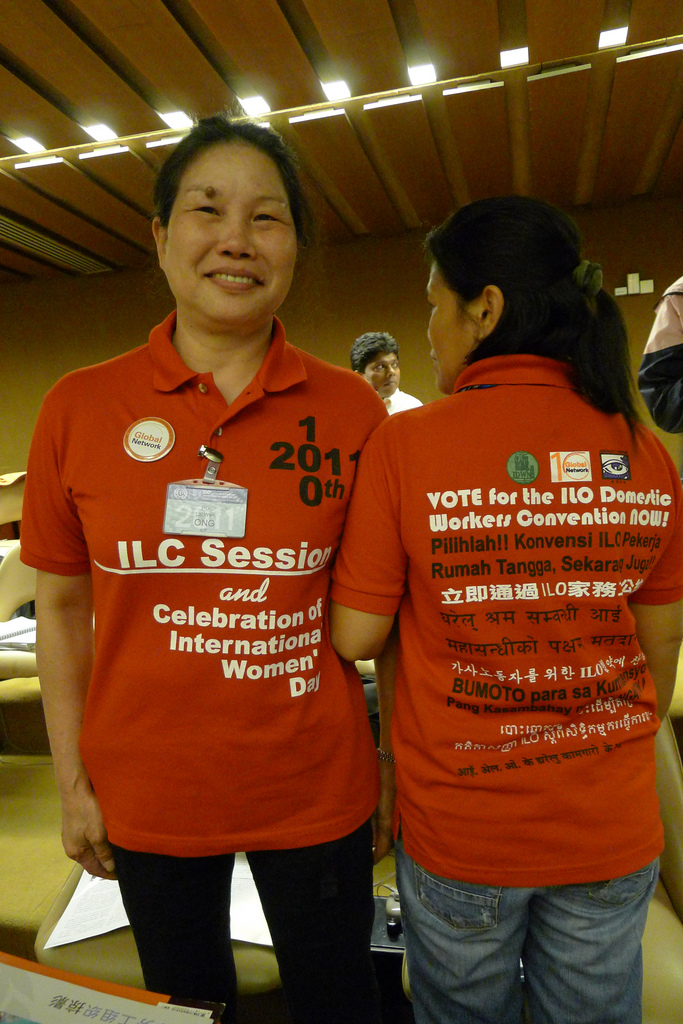ILO Adopts First Convention on Decent Work for Domestic Workers

The First Convention and accompanying Recommendation on Decent Work for Domestic Workers was adopted at the 100th International Labour Conference (ILC) in Geneva last week. In the wake of this historic event, domestic workers and their allies turn their attention to calling on States to ratify and implement the Convention. Read the National Domestic Workers Alliance’s coverage here and below:
Geneva, June 16, 2011 – Today Governments, Employers and Workers of the world at the 100th International Labour Conference (ILC) in Geneva, Switzerland adopted the First Convention and accompanying Recommendation on Decent Work for Domestic Workers. When the vote was announced, domestic workers unfurled a banner that read “C189: Congratulations! Now for the “domestic work” of governments- RATIFY.” Support for the Convention was overwhelming, with 396 voting in favor, and only 16 voting against (all employers), with an additional 63 abstaining. The Recommendation passed with 90% approval.
Juana Flores, US worker delegate to the ILC “With the passage of this International Convention and Recommendation, I am emotional thinking of all of the domestic workers- their sweat, their hard work, the abuses they’ve endured—and I myself have lived this experience. Today, at a global level, the work of cleaning houses, caring for children, the elderly, and disabled is recognized as work– work like any other.”
This is truly a historic event and a step forward for an estimated100 million domestic workers worldwide, primarily women.
Some governments attending the ILO have already indicated their willingness to ratify the Convention. Domestic workers from around the world will continue their organizing with efforts at the national level to ensure that governments put the contents of the Convention into the law of each country.
About the Convention: The Convention starts by recognising the “significant contribution of domestic workers to the global economy” and that this work is “undervalued and invisible, and is mainly carried out by women and girls, many of whom are migrants or members of disadvantaged communities”.
It affirms that domestic workers’ have the same fundamental rights that all workers have:
- the rights to freedom of association and collective bargaining,
the elimination of all forms of forced labour,
the effective abolition of child labour, and
the elimination of discrimination in respect of employment and occupation.
With this Convention, there is global consensus that domestic workers must enjoy and governments are called on to ensure effective protection against all forms of abuse, harassment and violence.
About NDWA: The National Domestic Workers Alliance organizes domestic workers in the United States for respect, recognition, and labor standards. Through leadership development, strategic campaigns, and alliance building we seek to help build a powerful movement for social and global justice. www.domesticworkers.org
About IDWN: The International Domestic Workers Network (IDWN) is made up of domestic workers’ unions and associations around the world, including Africa, Asia, the Caribbean, Latin America, North America, and Europe. Support organisations include International Union of Food, Agricultural, Hotel, Restaurant, Catering, Tobacco and Allied Workers’ Associations (IUF) and Women in Informal Employment Globalizing and Organizing (WIEGO). www.domesticworkerrights.org
